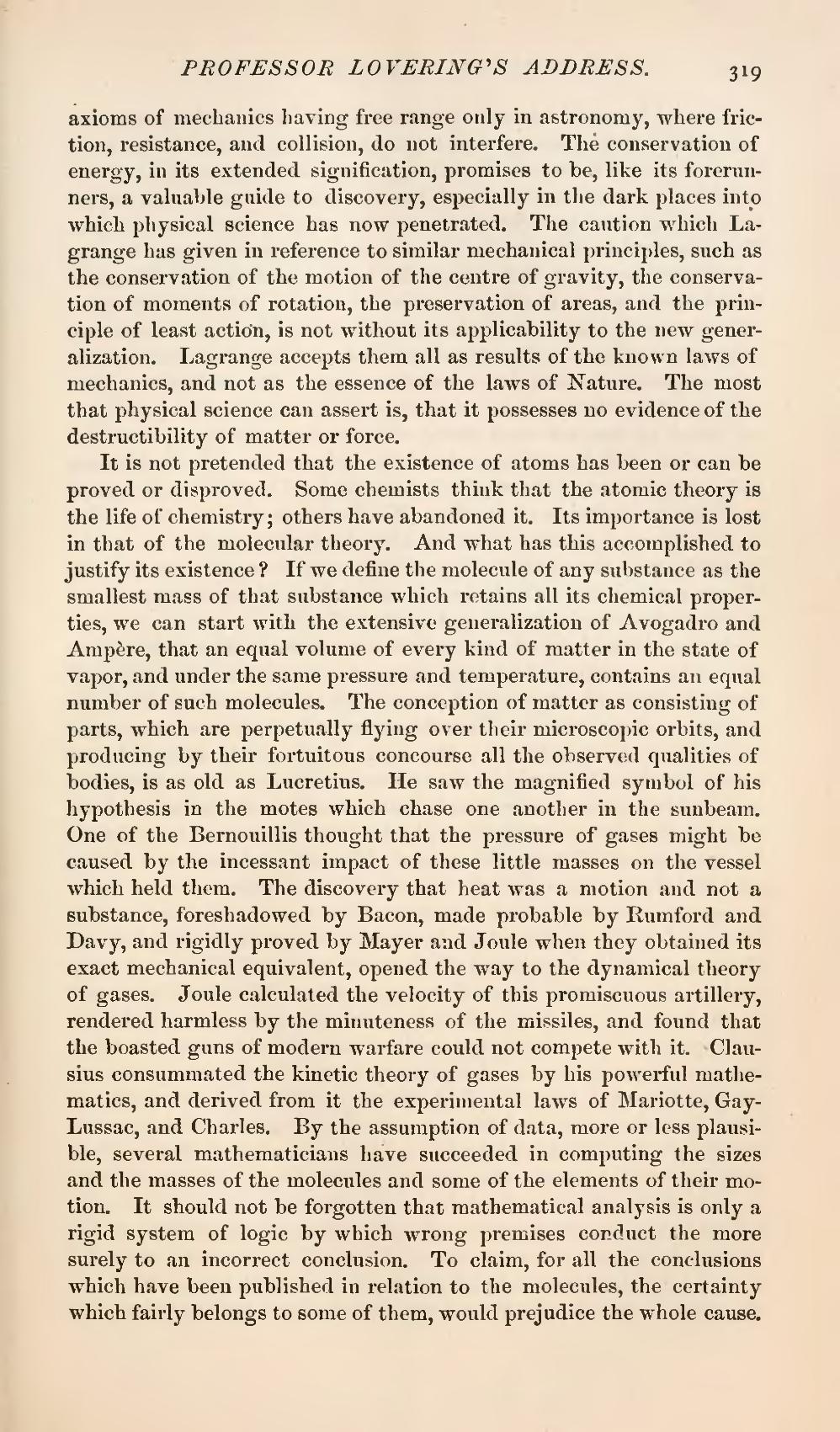axioms of mechanics having free range only in astronomy, where friction, resistance, and collision, do not interfere. The conservation of energy, in its extended signification, promises to he, like its forerunners, a valuable guide to discovery, especially in the dark places into which physical science has now penetrated. The caution which Lagrange has given in reference to similar mechanical principles, such as the conservation of the motion of the centre of gravity, the conservation of moments of rotation, the preservation of areas, and the principle of least action, is not without its applicability to the new generalization. Lagrange accepts them all as results of the known laws of mechanics, and not as the essence of the laws of Nature. The most that physical science can assert is, that it possesses no evidence of the destructibility of matter or force.
It is not pretended that the existence of atoms has been or can be proved or disproved. Some chemists think that the atomic theory is the life of chemistry; others have abandoned it. Its importance is lost in that of the molecular theory. And what has this accomplished to justify its existence? If we define the molecule of any substance as the smallest mass of that substance which retains all its chemical properties, we can start with the extensive generalization of Avogadro and Ampère, that an equal volume of every kind of matter in the state of vapor, and under the same pressure and temperature, contains an equal number of such molecules. The conception of matter as consisting of parts, which are perpetually flying over their microscopic orbits, and producing by their fortuitous concourse all the observed qualities of bodies, is as old as Lucretius. He saw the magnified symbol of his hypothesis in the motes which chase one another in the sunbeam. One of the Bernouillis thought that the pressure of gases might be caused by the incessant impact of these little masses on the vessel which held them. The discovery that heat was a motion and not a substance, foreshadowed by Bacon, made probable by Rumford and Davy, and rigidly proved by Mayer and Joule when they obtained its exact mechanical equivalent, opened the way to the dynamical theory of gases. Joule calculated the velocity of this promiscuous artillery, rendered harmless by the minuteness of the missiles, and found that the boasted guns of modern warfare could not compete with it. Clausius consummated the kinetic theory of gases by his powerful mathematics, and derived from it the experimental laws of Mariotte, Gay-Lussac, and Charles. By the assumption of data, more or less plausible, several mathematicians have succeeded in computing the sizes and the masses of the molecules and some of the elements of their motion. It should not be forgotten that mathematical analysis is only a rigid system of logic by which wrong premises conduct the more surely to an incorrect conclusion. To claim, for all the conclusions which have been published in relation to the molecules, the certainty which fairly belongs to some of them, would prejudice the whole cause.

